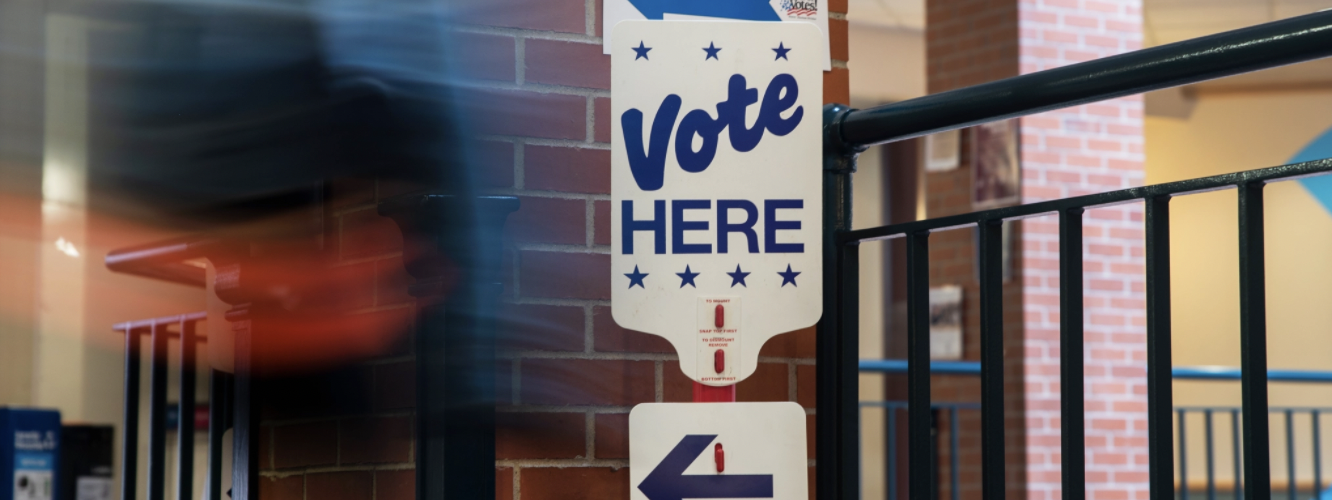In a panel discussion at Arizona State University Tuesday night, election policy experts examined the topic of ballot accessibility and accuracy in Arizona elections, as well as the lessons to be learned from the 2020 general election in a political environment where some Americans are expressing doubt about the administration of elections and the trustworthiness of their results.
Moderated by former state treasurer and Arizona Board of Regents President Emerita Eileen Klein, the panel featured John C. Fortier, an elections policy specialist and senior fellow at the American Enterprise Institute, former speaker of the Arizona House Kirk Adams, and Lisa Marra, director of elections for Cochise County and the president of the Election Officials Association of Arizona.
Commenting on the various systems that oversee the administration of elections across the country, Fortier said that the American election system, relative to other nations, is very decentralized in its structure, giving discretionary powers of design to each state.
“This means we have differences in not just rules about voting, but in the size of the jurisdictions,” Fortier said. “We have Los Angeles County with 10 million people and a small town in Maine where 50 people are being asked to administer the same elections.”
Fortier said that the American voting experience is far more exhaustive than the other systems around the world.
“We vote a lot, and what I mean by that is our ballots are long and complicated and we vote on presidents, Congress, governor, secretary of state, and state legislators,” he said. “We even vote on judges. That presents challenges for how to vote, for counting the ballot, for voter attention.”
Our federal system, consisting of 50 individual state election systems, and our wide-ranging ballots, are both a privilege and a big responsibility. And in the midst of a pandemic, Fortier said, emergency election system alterations had to be made.
Fortier and co-author Charles Stewart III assessed the lessons learned from the 2020 election and the adjustments made to the voting process in a paper released in September in conjunction with the MIT Election Science & Data Lab.
Marra provided her perspective as an Arizona elections official, saying that “other states wish they were Arizona. We do things very well.”
Marra discussed Arizona’s separation of powers in its election system, whereby the county recorder who oversees the voter registration list is elected, but a county elections director, who manages candidate filings, recalls, initiatives, establishes voting sites and more, is an appointed position.
Marra argued that the Arizona system places pressure on appointed elections officials to perform their jobs well. Poor performance could lead to their firing, which differs from elected county recorders, who typically face voters every four years.
Marra compared the recent controversy surrounding mail-in ballots in other states to Arizona’s experience, which she says has been using mail-in ballots successfully for decades.
“Other states that didn’t have that in place and tried to change quickly, they ran into problems. We have very good systems here,” Marra said. “We have a lot of choices for voters in Arizona and voters like that. You can vote early, on Election Day, you can get your ballot by mail.”
Adams, who was speaker of the Arizona House of Representatives from 2009 to 2011, said social media sources have contributed to Americans’ perception of the trustworthiness of the American electoral system.
“Social media algorithms create echo chambers,” he said. When everyone believes that the sentiments of those around them represent the consensus of the rest of the country or the whole state of Arizona, they are surprised on Election Day when the results do not align with their expectations.
“I think that what our leaders tell us about the results of an election is incredibly influential to how we think about that election, and when we have mixed messages, it can sometimes confuse in voters’ minds what really happened,” he said.
Adams recalled a televised Oval Office meeting between President Donald Trump and Arizona Gov. Doug Ducey before the 2020 election where the president made a negative comment about mail-in ballots that was refuted by Ducey, who defended the Arizona system as one that makes it easy to vote and hard to cheat, a response that Adams applauded.
Fortier cautioned that measuring voters’ confidence in the election system through opinion polls can be misleading.
“Measuring of voter confidence by polling is very problematic,” he said. “One of the reasons is we know this long history that shows the party who wins feels much more confident that the election has gone the right way, and the party who loses feels that it has gone the opposite way.”
In attendance at the event were state business leaders, ASU faculty, Maricopa County Recorder Stephen Richer, and former secretary of state and state Senate president Ken Bennett.
The discussion was the result of a partnership between the Arizona Chamber Foundation’s Arizona Junior Fellows program and the School of Civic and Economic Thought and Leadership at Arizona State University. The event was the second in The Future of Arizona Democracy series. The first event, “Is Arizona’s Initiative Process Ripe for Reform?” was held last spring.
















Add comment